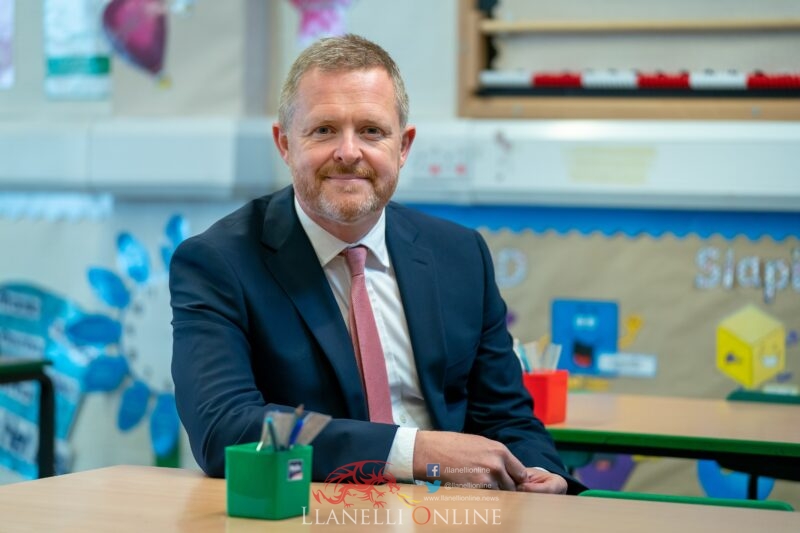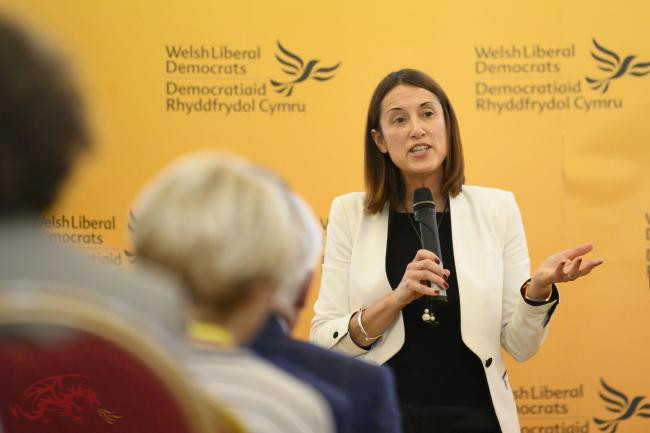AN economy which delivers a just transition to a sustainable future, with fair work at its heart, delivering good opportunities for young people, where we invest in the skills and innovation which we need to flourish in the future, working with our regional partners and others is the foundation of our Economic Mission.
As we look to the years ahead, to make a reality of our ambitions, we must seek to grow our economy truly sustainably, creating more opportunities for well-paid work and greater prosperity. This will enable us to increase living standards, improve health outcomes, respond to the climate emergency, tackle poverty, and address inequalities – objectives which are at the heart of our broader goals as a Government. There is no route to the more compassionate country that we want to be which does not pass through the more prosperous country that we need to be.
We want our entrepreneurs, businesses and our workforce to thrive in all regions of Wales. To accomplish this, I want us to set ourselves the bold ambition to make Wales the best place to start, invest in and grow a business in the United Kingdom, and to communicate that clearly both within and outside Wales.
My first priority is to increase our productivity and economic dynamism building on our interventions in skills, innovation, entrepreneurship and export support and the work of the Development Bank, ensuring our business support provision is the most effective. Aligning the work of universities, investors, entrepreneurs, existing businesses and Government around our key economic priorities will support this. And we must do this in the context of our clear commitment to fair work and to social partnership with unions and employers, if we are to deliver on our broader social goals. The levers to increase productivity are not all in the hands of the Welsh Government, but those which are will [be used purposefully].
My second priority is to attract and encourage business investment in Wales both in established businesses based in Wales and from new investors. This will create good new jobs and stimulating the growth of Welsh enterprises of all sizes, supply chains and value chains. Realistically this cannot simply be about direct support from public funds, important though that is. It will require a collaborative effort within and between all layers of government and a focussed approach to sectors and priorities which align with our existing assets.
My third priority is to redesign our employability and skills support helping our workforce and those seeking work, in the context of changing realities and our commitment to fair work. Skills are critical to improving productivity and crucial to delivering on the economic opportunities from our transition to a net zero Wales. Implementing our Net Zero Skills Plan will help deliver a just transition and clearly defining our national skills needs across the economy for the future will ensure we are best placed to realise the opportunities which will come. This includes aligning economic priorities, our skills provision and our vocational education offer seamlessly. We face considerable labour market challenges, economic inactivity is a persistent issue for Wales. The demand for employment and skills programmes remaining high and continuing, so we must ensure we are able to respond.
We must lead the current industrial revolution in our energy system to bring a just transition to a low carbon energy system and to drive a circular economy to focus upon economic and environmental opportunities. Bringing the economy and the energy portfolios together will facilitate our work to do this, putting our green energy future at the heart of our economic policy. All the above priorities come together in addressing the opportunities around this energy transition, with new investment in renewables and industrial transformation to secure the low cost, low carbon energy that will be essential for our businesses and wider society. The opportunities presented by Floating Offshore Wind demonstrate the huge prize for Wales and we will move swiftly and respond to this nimbly as a ‘whole of Welsh Government’ goal.
Our ongoing financial constraints and the continuing political and economic uncertainty at a UK level and beyond makes these aims challenging. The legacy of EU withdrawal, the pandemic and ongoing budgetary constraints has weakened the economy. The slowdown in UK productivity has impacted output, wages, and household incomes and these inequalities were already more acute in Wales before this time.
This has resulted in additional costs to business, challenges to export and international trade and new pressures on the capacity of the Government. This includes the failure of the UK Government’s levelling up policies and its broken promise to replace EU funds. Instead, it has bypassed the Welsh Government and this Senedd and has denied us vital funding to support strategic opportunities for growth. The most high-profile concern at present, is the potential job losses at Tata and I will ensure that the Welsh Government will continue to support our workers and unions in doing all we can to protect jobs and our steel industry in Wales. A UK general election is expected within the next nine months, with the real possibility of a better and fairer economic policy from a new UK Government.
Joint working initiatives such as Freeports, Investment Zones and City and Growth Deals, offer a better chance of success than the UK Government circumventing the Welsh Government and working closely with local government and Corporate Joint Committees is essential to making the most of the economic opportunities. We have been working with the OECD on how we can work more collaboratively in regional development across different levels of government. Looking to the future, we will draw on this work to ensure that we are closely aligning funding initiatives, our national economic priorities and our commitment to regional partnership.
Finally, the inclusion of economic policy and the Welsh language within the same ministerial portfolio, for the first time, will support our economic development work in communities where Welsh is widely spoken. We know that the economic health of those communities is fundamental to the future flourishing of Welsh. We are already expanding the Arfor initiative and later this year, the report of the Commission for Welsh-speaking Communities will help shape our future work both in relation to the everyday economy, employee and community ownership and broader economic opportunities for those communities.
Delivering truly sustainable economic growth and the capacity it brings to contribute to our broader policy agenda, requires a co-ordinated cross-government approach, to translate policy into delivery. and in the weeks ahead I will be working with ministerial colleagues to this end.
My officials have started making steps towards these priorities. In the weeks ahead, we will bring in external expertise to consider what the Welsh Government can do in collaboration with partners to accelerate opportunities for growth. To ensure a just transition, with a focus on areas including growing sustainable employment, future skills needs, the impact of artificial intelligence, and supporting firm-level productivity and business support.
We will also refresh our approach to stakeholder engagement across the economy portfolio, with new arrangement, so that we can ensure we have access to appropriate external advice and also to constructive challenge.
Please donate here: Support Carmarthenshire News Online Thank you for supporting independent journalism and contributing to the future of local news in Carmarthenshire. Carmarthenshire News Online has been dedicated to providing unbiased and trustworthy news, free from commercial or political influence. By donating as little as £1, you can help ensure the continuation of this important source of information for the community. Your contribution will have a significant impact on the sustainability of independent journalism. If you're looking to enhance your brand's visibility, we also offer advertising opportunities on our Livestream and podcasts. Our special offers provide excellent value for reaching our engaged audience. To learn more about these opportunities and to discuss your advertising needs, please feel free to call or text us at 07308598604. Thank you again for your support, and together we can ensure the availability of quality local news for Carmarthenshire and beyond.
Please donate here: Support Carmarthenshire News Online






